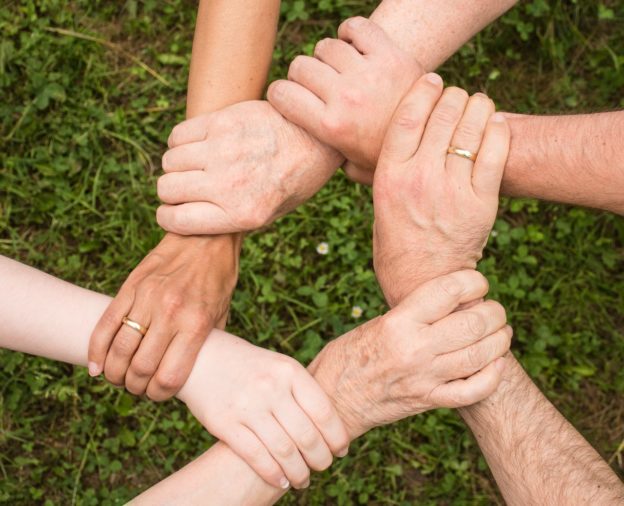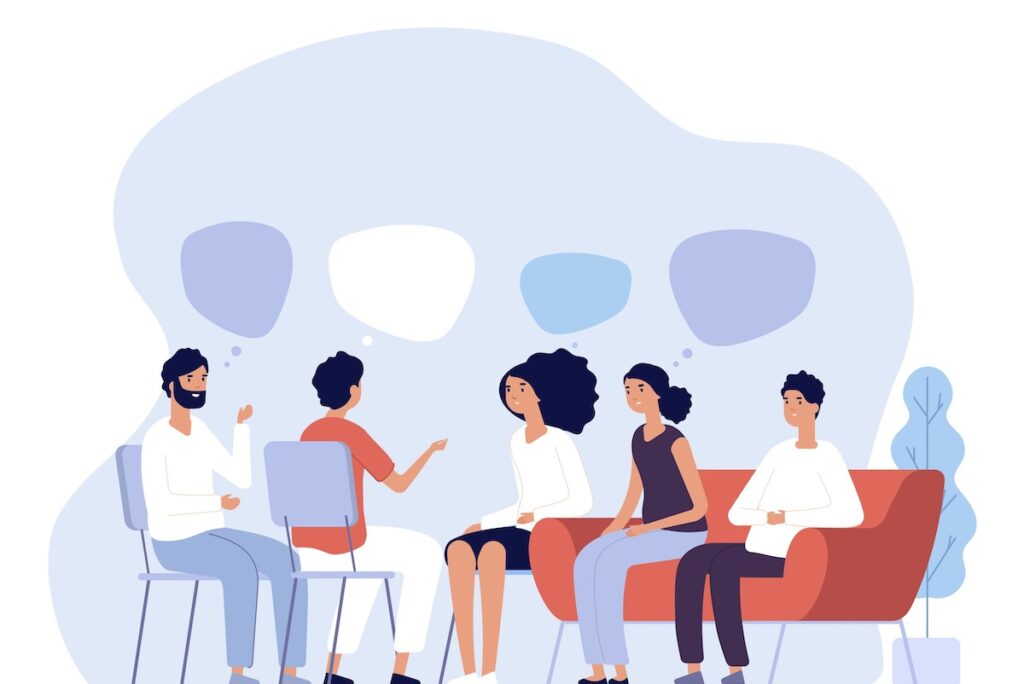Recovery from addiction is a multifaceted journey that requires comprehensive support and intervention. Two of the most effective therapeutic approaches in addiction treatment are individual therapy and group therapy. Each offers unique benefits, and when combined, they provide a powerful toolkit for individuals striving for sobriety. Harmony Ridge Recovery is committed to integrating both forms of therapy to maximize the potential for successful recovery.

Individual Therapy: Personalized Care for Deep Healing
1. Personalized Treatment Plans
Individual therapy allows for a highly personalized treatment plan tailored to the unique needs of each person. This one-on-one setting helps therapists understand the specific challenges and triggers that contribute to a person’s addiction. A personalized approach ensures that the therapy addresses the root causes of addiction, which can include trauma, mental health disorders, or life stressors.
2. Confidential and Safe Environment
In individual therapy, clients can share their thoughts and feelings without fear of judgment or exposure. This confidentiality is crucial for discussing sensitive issues that may be difficult to address in a group setting. A safe environment fosters trust between the therapist and the client, encouraging honesty and openness.
3. Focused Attention
One of the primary benefits of individual therapy is the focused attention a client receives from their therapist. This allows for in-depth exploration of personal issues and tailored strategies for coping and healing. The therapist can adapt the sessions based on the client’s progress, ensuring that the treatment evolves with their needs.
4. Addressing Co-Occurring Disorders
Many individuals with substance use disorders also struggle with co-occurring mental health issues such as depression, anxiety, or PTSD. Individual therapy is particularly effective in addressing these co-occurring disorders, providing integrated treatment that considers both the addiction and the underlying mental health issues.
5. Developing Coping Skills
Through individual therapy, clients can develop and practice coping skills specific to their situation. These skills are essential for managing cravings, avoiding relapse, and handling the stresses of daily life without resorting to substance use. Personalized coping strategies can make a significant difference in the recovery journey.
Group Therapy: Building Community and Shared Experience
1. Peer Support and Shared Experience
Group therapy provides a unique opportunity for individuals to connect with others who are going through similar struggles. This sense of community and shared experience can be incredibly validating and comforting. Hearing others’ stories and sharing one’s own can foster a sense of belonging and reduce feelings of isolation.
2. Learning from Others
In a group therapy setting, individuals can learn from the experiences of others. Hearing how peers have dealt with similar challenges and setbacks can provide new perspectives and strategies for managing one’s own recovery. This collective wisdom is a powerful resource that can enhance the therapeutic process.
3. Developing Social Skills
Group therapy helps individuals develop essential social skills, such as communication, empathy, and conflict resolution. These skills are crucial for building and maintaining healthy relationships, which are often strained or damaged by addiction. Improved social skills can also boost self-esteem and confidence, aiding overall recovery.
4. Accountability and Motivation
The group dynamic creates a sense of accountability, as members encourage each other to stay committed to their recovery goals. This mutual support can be highly motivating, providing the impetus to stay on track even when faced with difficulties. The progress of peers can also inspire individuals to persevere in their own journey.
5. Reducing Stigma and Shame
Participating in group therapy helps reduce the stigma and shame often associated with addiction. Seeing others openly discuss their struggles and victories can normalize the experience of addiction and recovery, making it easier to accept and address one’s own issues. This reduction in stigma can be liberating and empowering.
The Synergy of Combining Individual and Group Therapy
While both individual and group therapy offer significant benefits on their own, the combination of these two approaches provides a comprehensive treatment framework that addresses the multifaceted nature of addiction. Here’s how combining both therapies can enhance recovery:
1. Comprehensive Support
Combining individual and group therapy ensures that all aspects of a person’s recovery are addressed. Individual therapy provides deep, personalized insights and strategies, while group therapy offers community support and shared learning. Together, they create a robust support system that can adapt to the evolving needs of the individual.
2. Holistic Healing
The integration of individual and group therapy supports holistic healing. Individual therapy can address personal and psychological issues, while group therapy can enhance social skills and provide community support. This holistic approach ensures that recovery is not just about abstaining from substance use but also about building a fulfilling and balanced life.
3. Increased Self-Awareness and Empathy
Individual therapy fosters self-awareness by encouraging introspection and personal growth. Group therapy, on the other hand, fosters empathy as individuals listen to and support each other. Together, these therapies help individuals become more self-aware and empathetic, which are crucial traits for sustaining long-term recovery and building healthy relationships.
4. Flexibility and Adaptability
Having access to both individual and group therapy provides flexibility and adaptability in treatment. Depending on their needs and progress, individuals can shift the focus between personal issues and group dynamics. This flexibility ensures that the therapy remains relevant and effective throughout the recovery journey.
Harmony Ridge Recovery: Your Partner in Comprehensive Recovery
At Harmony Ridge Recovery, we understand the profound impact that both individual and group therapy can have on addiction recovery. Our treatment programs are designed to integrate these two approaches, providing a balanced and comprehensive framework for healing. Here’s how we can help:
1. Personalized Treatment Plans
Our individual therapy sessions are tailored to meet the unique needs of each client. Our experienced therapists work closely with clients to identify the underlying causes of their addiction and develop personalized strategies for recovery.
2. Supportive Group Therapy
Our group therapy sessions provide a supportive and non-judgmental environment where clients can share their experiences and learn from each other. We emphasize the importance of community and peer support in the recovery process.
3. Integrated Approach
We believe in a holistic approach to recovery that addresses the mind, body, and spirit. By combining individual and group therapy with other therapeutic modalities, we provide comprehensive care that supports long-term sobriety and overall well-being.
4. Continuum of Care
At Harmony Ridge Recovery, we offer a continuum of care that includes detoxification, residential treatment, outpatient programs, and aftercare support. This seamless transition between different levels of care ensures that clients receive consistent and ongoing support throughout their recovery journey.
5. Specialized Programs
We offer specialized programs tailored to the specific needs of our clients, including dual diagnosis treatment for those with co-occurring mental health disorders. Our goal is to provide integrated care that addresses all aspects of our clients’ well-being.
Conclusion
The journey to recovery from addiction is challenging, but with the right support and resources, it is entirely achievable. Individual and group therapy each offer unique benefits that, when combined, provide a powerful framework for recovery. Harmony Ridge Recovery is committed to integrating these therapeutic approaches to offer comprehensive and personalized care. If you or a loved one is struggling with addiction, reach out to Harmony Ridge Recovery. We are here to support you every step of the way, helping you build a fulfilling and sober life.











